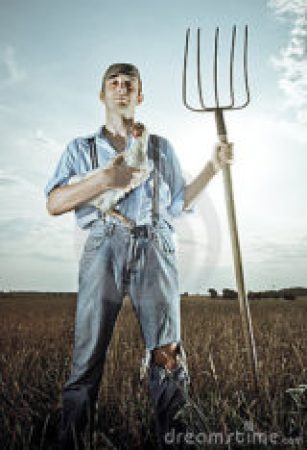(Gary Baise is a Virginia resident. This article shows the extent to which some will go to use the legal system to harm farmers all in the name of the environment. Our Virginia farmers are a little safer because of this legal case.)
A U.S. District Court judge has ruled in favor of a Maryland poultry and beef cattle farmer, Alan Hudson, declaring the Waterkeeper Alliance, Inc., its member Assateague Coastkeeper and its leader, Kathy Phillips, had an overall goal “…of using the CWA (Clean Water Act) to force poultry integrators, like Perdue, to seriously alter if not abandon their operations on the Eastern Shore {of Maryland}.”
The judge further singed Ms. Phillips in Waterkeeper Alliance v. Alan Hudson et al. on December 20th when he said, “While no one could question the passion with which Phillips approaches that goal, the court observed in her testimony and her conduct a certain “ends justify the means” approach, where truth can be “spun” to achieve a desired goal.”
The poultry farmer and his family, along with his integrator Perdue, engaged in a three year legal battle beginning when Ms. Phillips, a Waterkeeper Alliance attorney, and a reporter for the Wall Street Journal flew over the Hudson poultry operation in October, 2009. Ms. Phillips took photographs during the flight and concluded there was a large uncovered pile of poultry manure near a chicken house on the Hudson farm. She concluded without visiting the property there was a channel with runoff coming from the pile going to a nearby drainage ditch.
The pile of material Ms. Phillips saw in the photograph was not chicken manure, but an uncovered pile of Class A bio solids from Ocean City, Maryland’s sewage treatment plant awaiting spreading on the Hudson farm fields as fertilizer.
Ms. Phillips and her counsel filed a CWA Notice of Intent to Sue Mr. Hudson and his wife, despite the fact she never tested the pile of bio solids. The Notice of Intent caused the State of Maryland to immediately send in four state employees to investigate the Hudson farm and they, of course, confirmed the alleged pile of chick manure was in fact human manure or bio solids.
Three years later the court, after 10 days of trial, was not happy with what it saw and heard and advised the environmental plaintiffs that “When citizen groups take up that (CWA) mantle…they must do so responsibly and effectively. The court finds that in this action, for whatever reason, Waterkeeper did not meet that obligation.”
Even though the court was exceedingly harsh on the environmental groups’ tactics, the case is important to CAFO (Concentrated Animal Feeding Operation) operators for other reasons.
In trial, Ms. Phillips and her expert witness changed their legal theory from water runoff from a chicken manure pile to testifying that pollutants in the waterways near the Hudson farm were present because “exhaust fans” were exhausting fecal bacteria, chicken litter and attendant pollutants into Maryland’s waterways. They argued that the discharge of pollutants from the fans were a discharge of pollutants into ditches and a permit from EPA. (EPA supports this argument!)
The Court did not think much of the “exhaust fan” pathway argument. The Court chastised the experts and environmentalists for not taking samples of the water in certain ditches to establish whether the fans’ exhaust materials were polluting the water. In fact the court said “…it borders on indefensible that plaintiff would not have conducted the straightforward testing and sampling that could have established a discharge from the poultry operation, if there was such a discharge.”
The court goes on with language that is very important for all CAFO operators. “Without that sampling, the substance of Bell’s opinion is nothing more than: poultry fans can emit dust; poultry dust can contain litter; poultry litter can contain certain pollutants; and, because those pollutants were found in the water exiting the Hudson farm, some of those pollutants must have come from poultry operations.”
What the court concluded in this case is that Waterkeeper, Assateague Coastal and Ms. Phillips failed “…to establish that there was a discharge from the poultry operation. On the issue of whether there was such a discharge, plaintiff had the burden of proof by a preponderance of the evidence.”
The court went on to point out that it is possible for particles of chicken litter, fecal matter, dust and feathers to make their way out of poultry operations into waters of the state. This air deposition issue is not going away for CAFOs with fans ejecting particles and ammonia from production areas.
The sobering lesson from the court for all CAFOs is, it is possible that “…if plaintiff had done appropriate testing on the Hudson farm, they could have found evidence of that discharge.” Mr. Hudson and his legal team won because the court found that even though such pollution is possible there must be an actual discharge supported by a preponderance of the evidence.
While the victory by the poultry producer and Perdue was a great Christmas present, it is premature to conclude that this case or this issue regarding fan exhaust is over.
Email this author






